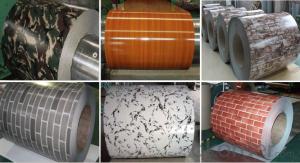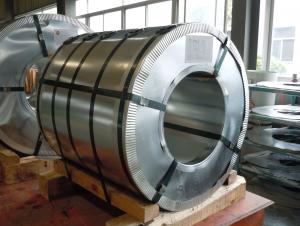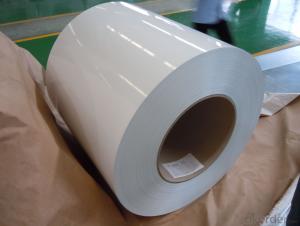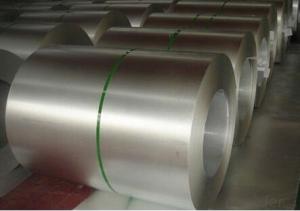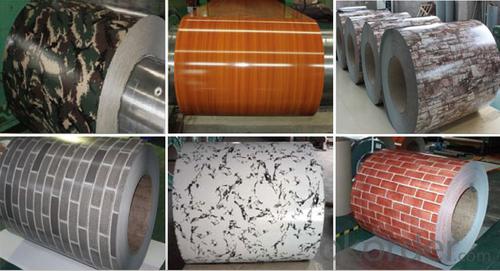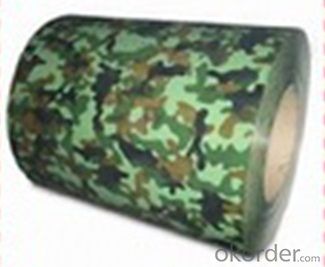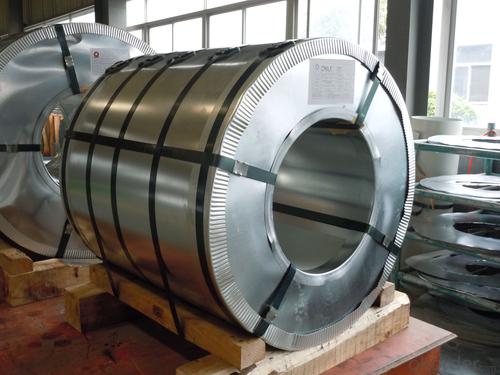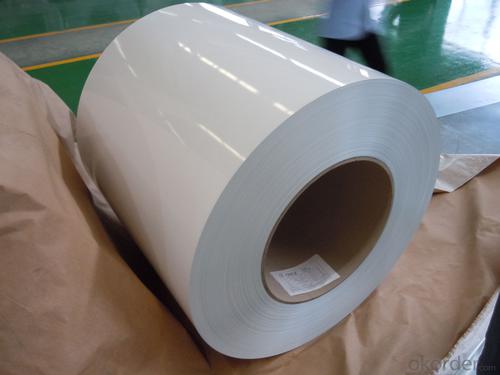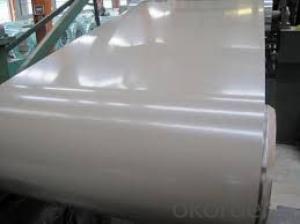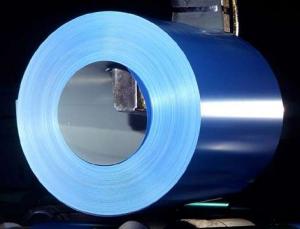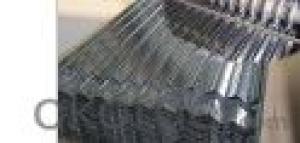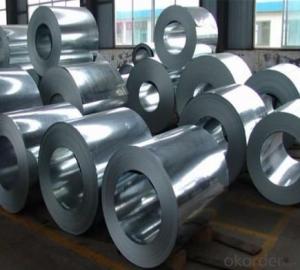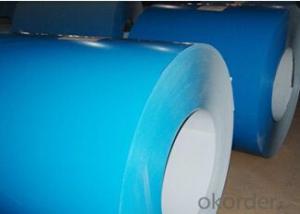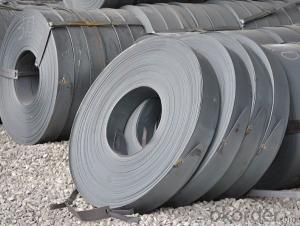Hot Dipped Galvanized Steel Coils(GI / GL / PPGI / PPGL)
- Loading Port:
- Shanghai
- Payment Terms:
- TT OR LC
- Min Order Qty:
- 50 m.t.
- Supply Capability:
- 100000 m.t./month
OKorder Service Pledge
OKorder Financial Service
You Might Also Like
Packaging & Delivery
| Packaging Detail: | mill's standard packing,sea worthy packing,steel pallets |
| Delivery Detail: | within 15-30 days after received the deposit or the LC at sight |
Specifications
hot dipped galvanized steel coils
1.FOB:650-1000SUSD/TON
2.size:0.13-0.6mm*750-1250mm*C
3.zinc coating:50-220gsm
4.chromate
hot dipped galvanized steel coils
NAME
| PPGI |
GALVANIZED
|
GALVALUME/ALUZINC
|
CERTIFICATE | ISO9001:2008 | ||
GRADE
| CGCC CGCH CGCD1-CGCD3 CGC340-CGC570 GRADE
| SS GRADE33-80 SGCC SGCH SGCD1-SGCD3 SGC340-SGC570 SGCC DX51D | GRADE33-80 SGLCC SGLCD SGLCDD SGLC400-SGLC570 SZACC SZACH SZAC340R |
MODEL NO | 0.16MM-0.8MM*1250MM OR UNDER | (0.127-1.2*1250MM OR UNDER | 0.12MM-2MM*1250MM OR UNDER |
TYPE
|
Steel coil Steel sheets/plates Corrugated steel sheets/plates
| Steel coil Steel sheets/plates Corrugated steel sheets/plates |
Steel coil Steel sheets/plates Corrugated steel sheets/plates
|
TECHNIQUE |
Ccold rolled -galvalume /galvanized -PPGI/PPGL | Cold rolled - galvanized |
Cold rolled -galvalume /Aluzinc
|
SURFACE TREATMENT | Mini/regular/big/zero spangle, Chromate treatment /chromate-free treatment /untreated unoile/oiled, TENSION LEVELLERT SKIN PASS anti-fingerprint/un-anti-fingerprint, Coating,color
| Mini/regular/big/zero spangle, Chromate treatment /chromate-free treatment /untreated unoile/oiled, TENSION LEVELLERT SKIN PASS anti-fingerprint/un-anti-fingerprint, Coating
| |
APPLICATION | Structural use ,roofing, commercial use, household appliance, industry, family
| ||
SPECIAL APPLICATION | Wear resistant steel, high- strength - steel plate | ||
- Q: What are the safety precautions when working with steel coils?
- When working with steel coils, it is important to follow several safety precautions. Firstly, workers should wear appropriate personal protective equipment (PPE) such as gloves, safety glasses, and steel-toe boots to protect themselves from potential injuries. Additionally, they should ensure that the work area is well-lit and free from any trip hazards. Proper lifting techniques should be used to prevent strains or sprains, and workers should be trained on how to safely operate any machinery or equipment involved in handling the coils. Regular inspections of the coils, checking for any defects or damages, should also be conducted to avoid accidents. Lastly, workers should be aware of the potential hazards associated with working with steel coils, such as sharp edges, pinching points, and the risk of heavy objects falling, and take necessary precautions to minimize these risks.
- Q: I heard on some shows that you can carbonise steel by heating it red hot then dropping it in black oil. i cant find this no where online, and the process for commercial carbon steel is totally different. can you really carbonise regular steel by heating it to red hot then dropping it in regular black oil. i saw it on mythbusters once. when the made carbon steel hammers to test if 2 hammers smashed together will shatter
- Carburized steel is not the same thing as carbon steel. All steel has carbon in it, but carbon steel is defined as Steel is considered to be carbon steel when no minimum content is specified or required for chromium, cobalt, molybdenum, nickel, niobium, titanium, tungsten, vanadium or zirconium, or any other element to be added to obtain a desired alloying effect; when the specified minimum for copper does not exceed 1.04 percent; or when the maximum content specified for any of the following elements does not exceed the percentages noted: manganese 1.65, silicon 0.60, copper 0.60. Carburizing is a surface treatment. Dropping hot steel in oil is oil quenching. It might get a little carbon in the surface, but oil quenching is mainly used as a slightly slower quenching process than water quenching, not for carburizing. Once it starts cooling down the carbon won't diffuse in. Quenching is used to change the hardness. The simplest way to carburize steel is to pack charcoal around it and heat it to 900 C or so. Industrial processes use a gas like carbon monoxide, but that's mostly just for easier process control.
- Q: i wanna know all the similarities between iron and steel
- 1. Both victim of corrosion
- Q: ive made lots of knives but they are dark and not shiny. how do i polish a knife and make it shiny
- Look for buffing compound at the hardware store. Home depot lowe's od even Wal-mart/ There is a compound for steel and for iron. I t will not make iron real shinny but it will make it look good. This stuff is to be used with a buffing wheel but I have used it on rags and it work great.
- Q: What's the length of a coil of cold rolled steel? Is there a standard?
- In 2.0*1000*C calculations, it is assumed that the formula for the length of 5T in this volume is 5000/ (2.0*1000*1000*7.93) = the total number of meters. First, the weight of one meter is calculated by dividing the total weight by the single weight, that is, the theoretical length of the volume
- Q: for a roof spanning 14.4m x 8.4m on a residential house, is it better to use timber trusses or steel trusses? the priorities are; ease of construction, price, insulation (want to keep heat out, i am in a tropical country), durability, flexibility, minimal load on foundations.please help. thank you :-)
- U will to find details on metal trussesin constructing materials AND development through BINDRA AND ARORA and u may additionally to find them in MCKAY(B.M.C).About steel doors and windows search the net u can search in google or yahoo u will to find it . Ok bye bye all of the exceptional.
- Q: I need to know what steel's weakness is.
- look okorder
- Q: Ive been playing with my ping i3 graphite irons for 6 years now and some days i can hit it and some days i cant. Then i tried out my friends irons the other day and he had steel and i was hitting the ball anywhere i wanted it to go..Is that a fluke or is steel irons just better than shaft? I was thinking about trading my graphites for steel, is that a good idea??
- Graphite Or Steel Irons
- Q: How are steel coils used in the production of metal bridges?
- Steel coils are used in the production of metal bridges as they are rolled into the desired shape and size to form the structural components of the bridge, such as beams, girders, and support structures. These coils provide the necessary strength and durability to withstand the weight and stress of the bridge, ensuring its long-term stability and safety.
- Q: How are steel coils used in the production of storage tanks?
- Steel coils are typically used as the raw material in the production of storage tanks. These coils are formed into sheets and then shaped and welded to create the tank's body. The strength and durability of steel make it an ideal choice for storing various substances, including liquids and gases, ensuring the safety and longevity of the storage tanks.
Send your message to us
Hot Dipped Galvanized Steel Coils(GI / GL / PPGI / PPGL)
- Loading Port:
- Shanghai
- Payment Terms:
- TT OR LC
- Min Order Qty:
- 50 m.t.
- Supply Capability:
- 100000 m.t./month
OKorder Service Pledge
OKorder Financial Service
Similar products
Hot products
Hot Searches
Related keywords
